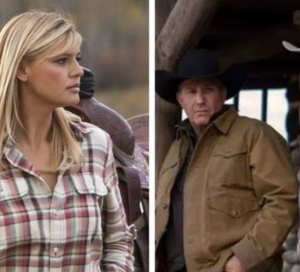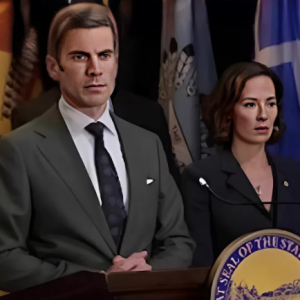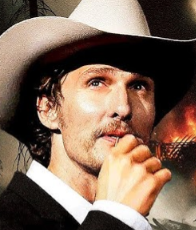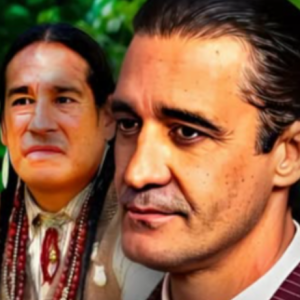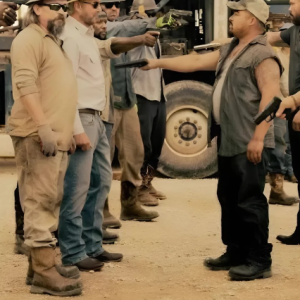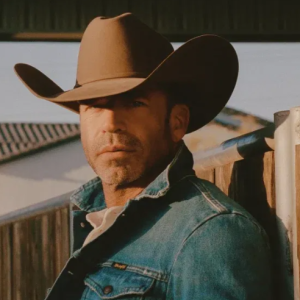The Taylor Sheridan series Yellowstone is defined by the controversial, often lawless, tendencies of its main characters. Indeed, if real-world justice were applied, most, if not all, of the Dutton family would likely face lengthy prison sentences. The relentless defense of the Yellowstone Dutton Ranch, the largest contiguous ranch in the United States, frequently translates into acts of murder and other felonies, particularly for patriarch John Dutton and his loyal enforcer, Rip Wheeler. This violent commitment is vividly introduced early in the series with Rip’s intention to send individuals deemed threats, like Walker, to the infamous “Train Station”—a remote canyon where bodies are disposed of, never to be found.
With very few exceptions, Yellowstone transforms its main characters into perpetrators of serious crimes. Even those initially resistant to the family’s violent legacy find themselves complicit. Monica, Kayce Dutton’s wife, vehemently opposed the family’s violence, yet the grim realities of Yellowstone’s themes eventually pull her into their orbit. She aids Thomas Rainwater in apprehending a killer on the Broken Rock Reservation by luring him to a kill site, where Mo Brings Plenty delivers a fatal shot. Even young Tate, Kayce and Monica’s son, is forced to shoot an intruder in self-defense in season 4. While the show’s narrative often makes it compelling to witness the Dutton family evade justice, crafting a world where their extreme measures seem necessary, a realistic legal framework would see them imprisoned for their extensive list of transgressions.
John Dutton III: The Patriarch of Lawlessness
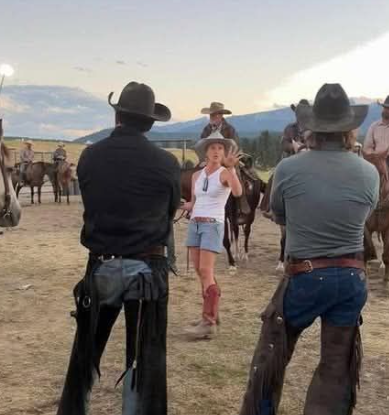
John Dutton stands as the primary architect of the family’s violent legacy and is arguably the most deserving of prison. Actor Kevin Costner himself has mused about the family’s violent tendencies, suggesting, “We should all be in prison” regarding Yellowstone’s main characters. From season one, it’s evident that John has either personally carried out or sanctioned countless murders and other illicit activities in his unwavering mission to protect his family’s ranch.
This track record builds upon a violent heritage stretching back to the 19th century, when John’s ancestor, James Dutton, routinely killed and hanged thieves. While James lived in a frontier era with different legal standards, John’s contemporary actions continue this brutal tradition. Though John may not physically dump bodies, flashbacks reveal he initiated the Train Station practice, training younger Rip and Lloyd in the grim art of disposal. John’s willingness to manipulate politics, blackmail officials, and greenlight extreme violence underscores his profound disregard for conventional law, all under the guise of protecting his land from perceived greed. His command over the Livestock Agents, turning them into a personal paramilitary force, is another blatant example of his abuse of power, sanctioning violence and coercion for the ranch’s benefit.
Beth Dutton: Vicious Protector, Corporate Criminal
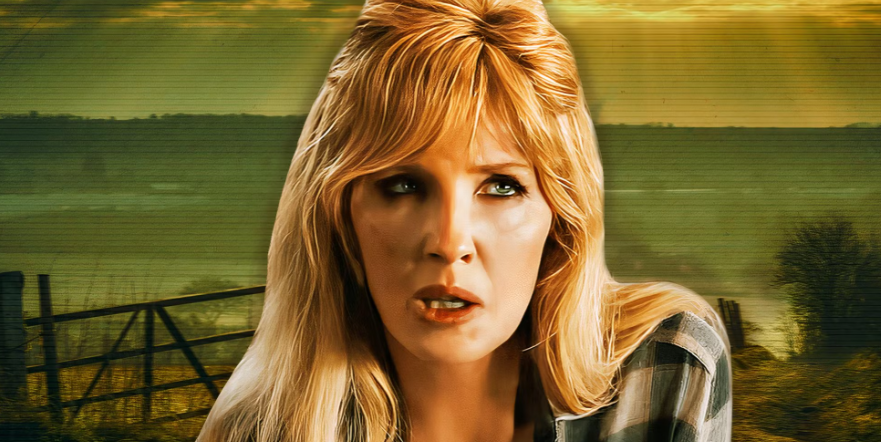
Beth Dutton, John’s fiercely loyal and volatile daughter, possesses a unique blend of corporate cunning and raw brutality that makes her a significant candidate for incarceration. Beth’s intense animosity and numerous threats against her adopted brother Jamie are well-documented, but her actual aired crimes are also substantial. She has a history of physical assault, from attacking tourists to orchestrating vicious beatings. She routinely engages in destruction of property, whether setting fires or vandalizing.
Beyond her physical aggressions, Beth’s corporate machinations against Market Equities present a clear path to prison. As Caroline Warner notes in Yellowstone season 4, Beth has violated her contract, breached non-disclosure agreements, and engaged in corporate espionage. Her calculated financial maneuvers, designed to destabilize Market Equities and protect the ranch, often cross legal lines, constituting fraud, insider trading, or other white-collar crimes that could result in severe penalties. Beth’s capacity for cold, calculated cruelty, coupled with her complete disregard for legal boundaries when protecting her family, makes her a truly dangerous and law-breaking figure. Her vengeful nature consistently drives her to actions that are clearly criminal, regardless of their perceived justification within the Dutton code.
Jamie Dutton: The Ambivalent Betrayer
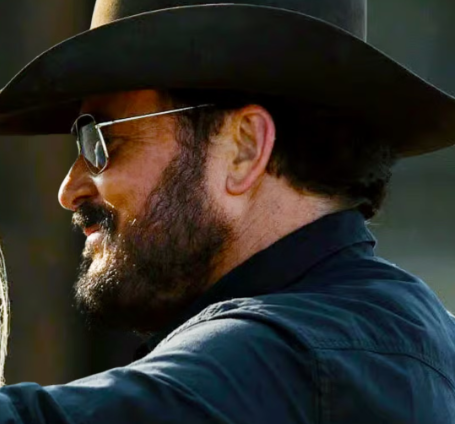
Jamie Dutton, the adopted son, often finds himself caught between a desire for acceptance and a desperate bid for independence, frequently resulting in actions that merit severe legal consequences. Jamie has a confirmed history of serious criminal offenses.
Most notably, Jamie committed murder in Yellowstone season 2, orchestrating the death of journalist Sarah Nguyen to cover up an incriminating interview he gave about John Dutton. This cold-blooded killing to protect the family’s image stands as a clear felony. Furthermore, at the end of Yellowstone season 4, Jamie murdered his biological father, Garrett Randall, shooting him by the creek. This patricide, committed under Beth’s coercion, adds another layer to his criminal record. In Season 5, Jamie, as Attorney General, uses his position to pursue the impeachment of his father, Governor John Dutton. While his legal claims about John’s abuses of power may have some merit, his alliance with Sarah Atwood, a calculated move to gain political power and undermine John, ventures into conspiracy and political corruption. Jamie’s consistent pattern of making morally questionable, often illegal, decisions in his pursuit of power or acceptance, always with devastating consequences, marks him as profoundly complicit in the Dutton’s criminal enterprise. His intelligence is often twisted to serve illicit means, making him a complex but undeniably culpable character.
Kayce Dutton: The Lawman with Blood on His Hands

Kayce Dutton, the former Navy SEAL and current Livestock Commissioner, often grapples with a moral compass that, while more intact than his siblings’, frequently succumbs to the Dutton family’s lawless methods. Despite his role as a law enforcement officer, Kayce has committed numerous acts that would warrant prison time.
Perhaps his most morally complex and legally damning crime occurred after his son, Tate, was kidnapped. In his pursuit of justice, Kayce apprehended the abductors, not to bring them to trial, but with the explicit intent to kill them. Using his badge as a pretense of authority, he abandoned due process, executing Tate’s kidnappers in cold blood. While Kayce is responsible for other killings throughout the series, some, like his swift action in season 1 to prevent an active abduction on the Broken Rock Reservation, are framed as morally justifiable or even heroic, leading figures like Thomas Rainwater and Chief Ben Waters to help cover up his tracks. However, his calculated execution of Tate’s kidnappers, bypassing all legal avenues, represents a profound betrayal of his oath as a lawman and a clear-cut case of murder that would undoubtedly lead to conviction in a real court. This act highlights the inherent conflict within Kayce, torn between the rule of law and the Dutton code, and the tragic lengths he will go to for his family.
Rip Wheeler: The Ranch’s Ruthless Enforcer

Rip Wheeler, John Dutton’s loyal, unshakeable enforcer, embodies the very essence of the ranch’s brutal justice system. Having committed countless murders and violent acts in his unwavering commitment to John and the Yellowstone, Rip’s entire adult life has been a succession of felonies.
His first major crime on the ranch, a pivotal event in his youth, perfectly illustrates his trajectory towards lawlessness. In a flashback in season 5, a younger Rip, while protecting the herd, got into a brawl with fellow ranch hand Rowdy. When Rowdy, having made disrespectful comments about Beth, pulled a knife, Rip retaliated by hitting him with a rock. Though not intended to be fatal, the blow led to Rowdy’s death. As John Dutton himself noted, the hostility was disproportionate, exceeding what was necessary for ranch protection. This incident marked Rip’s first visit to the Train Station, where he, under John’s guidance, dumped Rowdy’s body, effectively sealing his fate as the ranch’s dedicated executioner. From that point on, Rip became John’s most reliable instrument for removing threats, whether they were cattle rustlers, corporate rivals, or disloyal cowboys. His entire existence is predicated on operating outside the law, ensuring that anyone who threatens the Dutton empire meets a swift, and often fatal, end. His unwavering loyalty, while admirable, is consistently expressed through violent and criminal means.
Conclusion: Justice’s Unlikely Dodge

The world of Yellowstone presents a compelling narrative where the Dutton family, in their fight for survival and legacy, operates with a complete disregard for conventional law. From John Dutton’s strategic assassinations and political manipulations to Beth’s corporate espionage and violent assaults, Jamie’s cold-blooded murders, Kayce’s extrajudicial killings, and Rip’s role as the ranch’s primary executioner, each core member has committed crimes warranting severe prison sentences. The show masterfully portrays their actions as necessary evils, driven by a deep-seated desire to protect their way of life and the land they cherish. However, in a truly realistic scenario, the sprawling Yellowstone Dutton Ranch would likely stand empty, its family members behind bars, paying for the trail of bodies and broken laws left in their wake. The series thrives on this moral ambiguity, asking viewers to grapple with whether the preservation of a legacy justifies such pervasive lawlessness, and whether, ultimately, justice will ever truly catch up to the Duttons.
